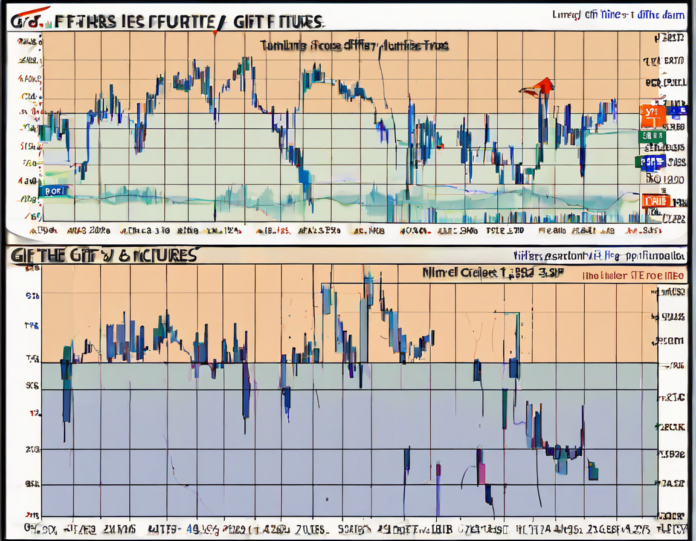Are you looking to enhance your investment portfolio and maximize your returns? If so, Nifty Futures may be the perfect addition to your investment strategy. Nifty Futures offer a unique opportunity for traders and investors to speculate on the future direction of the stock market by trading the National Stock Exchange’s benchmark index, Nifty 50, at a predetermined price on a future date. In this comprehensive guide, we will delve into the world of Nifty Futures and explore how you can unlock your portfolio potential through this exciting financial instrument.
Understanding Nifty Futures
What are Nifty Futures?
Nifty Futures are financial contracts that obligate the buyer to purchase or sell the Nifty 50 index at a predetermined price on a specified future date. These futures contracts are standardized and traded on the National Stock Exchange of India (NSE). Investors can use Nifty Futures to hedge against market risks, speculate on market movements, or diversify their investment portfolios.
How do Nifty Futures work?
Nifty 50 is an index that represents the performance of the top 50 companies listed on the NSE. Nifty Futures derive their value from the underlying Nifty 50 index. When investors buy Nifty Futures, they are essentially betting on the future price movement of the Nifty 50 index. If the index rises, they can sell the futures contract at a profit, and if it falls, they can buy it back at a lower price.
Benefits of Trading Nifty Futures
Portfolio Diversification
Nifty Futures offer investors a unique opportunity to diversify their portfolios beyond traditional stocks and bonds. By trading futures contracts tied to the Nifty 50 index, investors can gain exposure to a diversified basket of top-performing companies in various sectors.
Leverage
One of the key advantages of trading Nifty Futures is the ability to leverage your investment. Since futures contracts require only a fraction of the total contract value as margin, investors can control a larger position with a relatively small capital outlay. This can amplify potential returns, but it is essential to note that leverage also magnifies potential losses.
Hedging Against Market Risks
Nifty Futures can be used effectively as a hedging tool to mitigate risks associated with stock market fluctuations. By taking an offsetting position in Nifty Futures contracts, investors can protect their portfolios from adverse market movements and potential losses.
Liquidity and Price Transparency
The Nifty Futures market is highly liquid, with robust trading volumes and tight bid-ask spreads. This liquidity ensures that investors can enter and exit positions quickly and at competitive prices. Moreover, price quotes and market data for Nifty Futures are readily available, promoting price transparency and efficient price discovery.
Strategies for Trading Nifty Futures
Long Futures Position
Investors can take a long position in Nifty Futures contracts by buying them with the expectation that the Nifty 50 index will appreciate in the future. If the index rises as anticipated, investors can sell the futures contracts at a profit. However, if the index falls, they may incur losses on their long futures position.
Short Futures Position
Alternatively, investors can take a short position in Nifty Futures contracts by selling them with the expectation that the Nifty 50 index will decline in the future. If the index falls as anticipated, investors can buy back the futures contracts at a lower price, realizing a profit. Conversely, if the index rises, they may face losses on their short futures position.
Spread Trading
Spread trading involves simultaneously taking both long and short positions in related Nifty Futures contracts to exploit price differentials between them. This strategy can help offset risks associated with market fluctuations and enhance profitability through arbitrage opportunities.
Options Strategies
Investors can also employ options strategies in conjunction with Nifty Futures to create more complex trading strategies. Options contracts provide the right, but not the obligation, to buy or sell Nifty Futures at a predetermined price on or before the expiry date. Combining options with Nifty Futures can offer investors greater flexibility and risk management capabilities.
Risks Associated with Nifty Futures Trading
Market Volatility
Nifty Futures trading is inherently risky due to market volatility and unpredictability. Sudden price fluctuations in the Nifty 50 index can result in significant gains or losses for futures traders. It is crucial for investors to assess their risk tolerance and implement risk management strategies to mitigate potential losses.
Leverage Risk
As mentioned earlier, trading Nifty Futures on margin involves leverage, which can amplify both profits and losses. Excessive leverage can expose investors to heightened risks and potential margin calls if the market moves against their positions. It is essential to use leverage prudently and maintain adequate margin requirements to safeguard your investments.
Liquidity Risk
While the Nifty Futures market is highly liquid, there may be instances of reduced liquidity during periods of market turbulence or low trading volumes. Limited liquidity can impact trade execution and lead to wider bid-ask spreads, potentially affecting the profitability of futures trades. Investors should be mindful of liquidity risks and trade actively in liquid markets.
Frequently Asked Questions (FAQs)
1. What is the minimum capital required to trade Nifty Futures?
To trade Nifty Futures, investors need to maintain a minimum margin deposit as specified by the exchange. The margin requirements vary based on the contract size and market conditions. It is advisable to consult your broker or exchange for specific margin details.
2. Can beginners trade Nifty Futures?
While Nifty Futures trading can be lucrative, it is also complex and involves inherent risks. Beginners are advised to acquire a thorough understanding of futures trading, risk management techniques, and market dynamics before venturing into Nifty Futures trading.
3. How are Nifty Futures settled?
Nifty Futures contracts are settled on the expiry date through physical delivery or cash settlement, depending on the investor’s preference. Most traders opt for cash settlement, wherein the profit or loss from the futures trade is settled in cash without the physical delivery of the underlying securities.
4. Are there any tax implications associated with Nifty Futures trading?
Profits from Nifty Futures trading are considered capital gains and are subject to capital gains tax regulations. Short-term capital gains (holding period less than one year) are taxed at a higher rate than long-term capital gains. Investors should consult a tax advisor for guidance on tax implications.
5. How can investors stay informed about Nifty Futures market developments?
Investors can stay abreast of Nifty Futures market developments by monitoring financial news, market analyses, and economic indicators that influence the Nifty 50 index. Subscribing to market research reports, following reputable financial websites, and tracking real-time market data can also help investors make informed trading decisions.
In conclusion, Nifty Futures offer a compelling avenue for investors to diversify their portfolios, hedge against market risks, and capture trading opportunities in the Nifty 50 index. By understanding the fundamentals of Nifty Futures trading, implementing sound strategies, and managing risks effectively, investors can unlock their portfolio potential and achieve their financial goals in the dynamic world of futures trading.
















